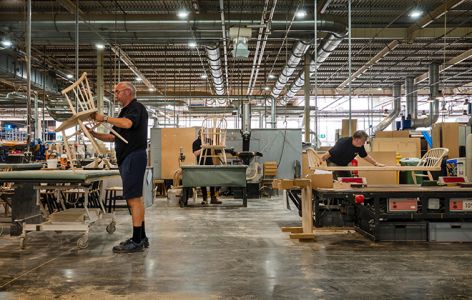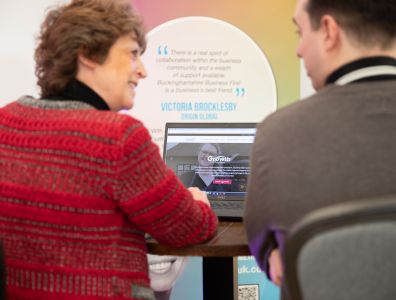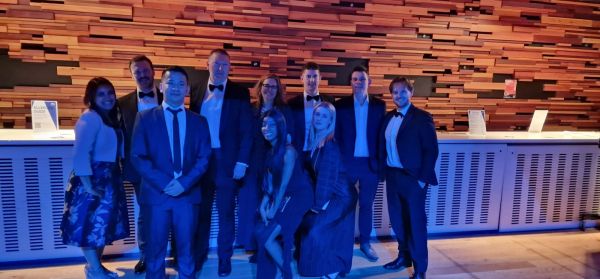- By Thomas International
- 6 June, 2018

Share by email
Thomas International’s recent Q&A with organisational psychologist Ian MacRae explored ways to support the next generation of leaders.
Thomas International write:
So far we’ve looked at talent diversity, gender diversity, removing unconscious bias in recruitment and development processes, and cross-cultural perspectives on diversity. Now, on to age diversity. How do you achieve age diversity in your business? Well, the workforce age is growing younger. By 2020, it is reported that Generation Z (or Centennials), the cohort born between the mid-1990s and 2010, will account for roughly 20% of the global workforce.
It is vital to start talking about the emergence of Gen Z early so leaders can adapt to the intricacies of a new generation, support them in the best way for them and lead them to be successful workers – and indeed the future leaders of our companies.
We interview Ian MacRae, organisational psychologist, researcher, writer and founder of High Potential Ltd., to trigger our conversation on the emerging workforce. Ian has written extensively about generational differences in the workplace.
Ian, first of all, thank you for taking part in this interview. Your wisdom and thoughts on generational differences are extensive!
In your book Motivation and Performance, you say: “Hiring young people should not be seen as a burden. Get it right, and younger employees have substantial potential.” What potential do you think younger employees have?
That’s a question that is introduced in Motivation and Performance and covered even more extensively in my latest book, High Potential: How to spot, manage and develop talented people at work. This potential varies by individual, and employers should be very clearly defining potential in terms of potential to do what? What makes a leader successful is very different from what makes a successful PR person, salesperson or technician. Younger employees are the future leaders, scientists, marketers and salespeople – companies need to understand and clearly define what makes a person successful (or have a high potential to succeed) in a particular position, then attract the right people.
Can you summarise your argument in both books in a couple of sentences?
There is as much diversity within any generation as there is between different generations. There are useful tools and metrics for identifying high potential and good performance at work that have nothing to do with a person’s birthday. That’s one of the reasons I developed the High Potential Trait Indicator (HPTI) with Adrian Furnham to use scientific tools to identify tomorrow’s leaders.
What do you think the younger workforce’s motivations are and will be?
I think the younger workforce’s motivations are as diverse as the previous generation. The myth is that the younger generation is motivated by excitement, recognition and career development. The reality is that class, income and individual differences like personality have a much greater impact on motivation. For example, those who have difficulty paying monthly bills and struggle with rent payments value salary and job security more than their affluent peers of the same age. Self-actualization and career development are the dream, but every generation quickly finds that paying the bills has to come first.
Stereotyping generations and their differences seems to be your bugbear! What can companies do to reduce stereotyping groups of workers?
All stereotypes which have no basis in fact create unnecessary and unhelpful barriers in the workplace. Stereotypes about generations are particularly irritating because they are so enduring. Some Ancient Greek critics argued that the invention of writing would harm the next generation’s ability to remember information – the same argument is made today about instant access to digital information.
Talking of digital information, those part of Generation Z are being described as ‘digital natives’. Do you think there is any accuracy in this term?
Absolutely. Those in Generation Z who have grown up in regions with internet connectivity and easy access to mobile devices seem to take more naturally to this technology. But growing up with constant connectivity and mobile devices doesn’t necessarily translate into work skills.
Of course. Here’s an interesting question for you! Do you think Generation Z employees will need to be managed and lead in a different way to older workers?
Yes and no. There will certainty be new skills for managers to learn in managing the workplaces of the future. Technologies for communication, task management, content management systems and digital publishing are becoming widespread and will be essential. While the tools to manage people will change, the ability to manage and lead people will stay much the same.
There are some concerns about Generation Z and varying levels of self-esteem. Do you agree? What approaches could businesses put in place to manage this?
There is an assumption that young people have excessively high (or low) levels of self-esteem. Some would say the “Everyone gets a trophy” culture raises the next generation to be self-obsessed narcissists who require constant praise. Others would argue that a current culture of work insecurity, political instability, and unpredictable technological and societal change have created an anxious and insecure generation. The truth lies somewhere in between. Businesses should clearly communicate expectations and opportunities in the job. Make the job requirements transparent, explain how promotions, raises and bonuses are awarded. Create the workplace environment for people to be successful, hire the best candidates (irrespective of age), and give constructive and honest feedback. Give employees the environment and the resources to succeed, and their self-esteem is ultimately tied to their own behaviour and performance.
It’s important in business to understand employees and potential employees, especially if you want a happy workforce and successful business. What do you think companies could do to be more aware of the motivations and expectations of their Gen Z employees?
Just ask them. The best managers and leaders understand their people as well as their business. Motivation can change slowly, or can suddenly change. Some employees will want a stable job, regular income and enough time to pursue their own interests and have time with family. Others will want to put most of their time and energy into their career. Don’t assume all of Generation Z are motivated by the same thing – understand motivation as an individual difference factor, not a generational norm.
Coming to an end, we understand that you believe generational differences are a myth – but do you think the ways in which companies recruit younger employees will change?
The platforms will certainty change, and many companies are promoting themselves as desirable places to work in new ways. For example, competitive employers promote themselves and the image of their company to prospective employees, as well as clients. This has become a branding exercise that is integrated with the recruitment department. Promotional videos and articles online, viral content and internal communications move far beyond basic job listings. For some of the most innovative companies with rapid growth, attracting top talent is more difficult than attracting new customers.
Thank you, Ian. This has been most thought-provoking!
Do you agree with Ian? Do you have thoughts of your own on this subject?
Generation Z, and your understanding of this workforce, can be your secret weapon or biggest challenge – what you do now to understand their motivations for working can determine which.
If you would like more information on what has been discussed in this blog post, or would like to talk about bringing ideas of diversity, staff engagement, talent benchmarks or adverse impact audits into your organisation, get in touch with us at Thomas International and we will be able to recommend the best approach for your business.







